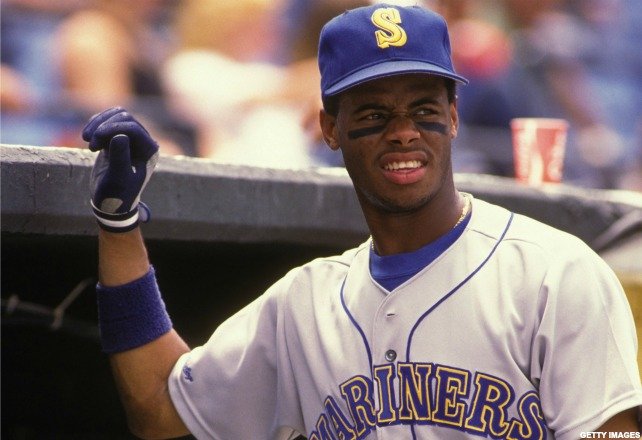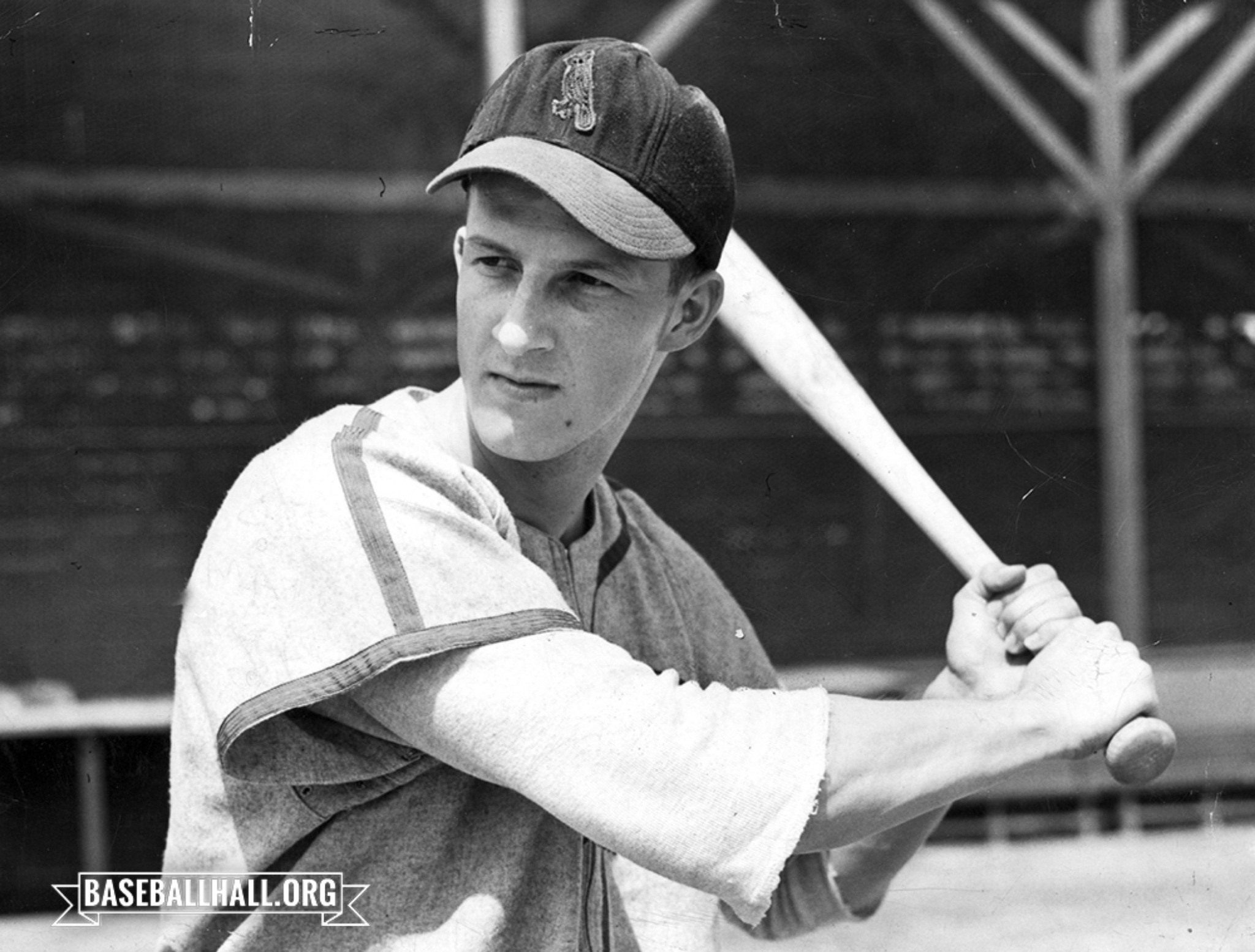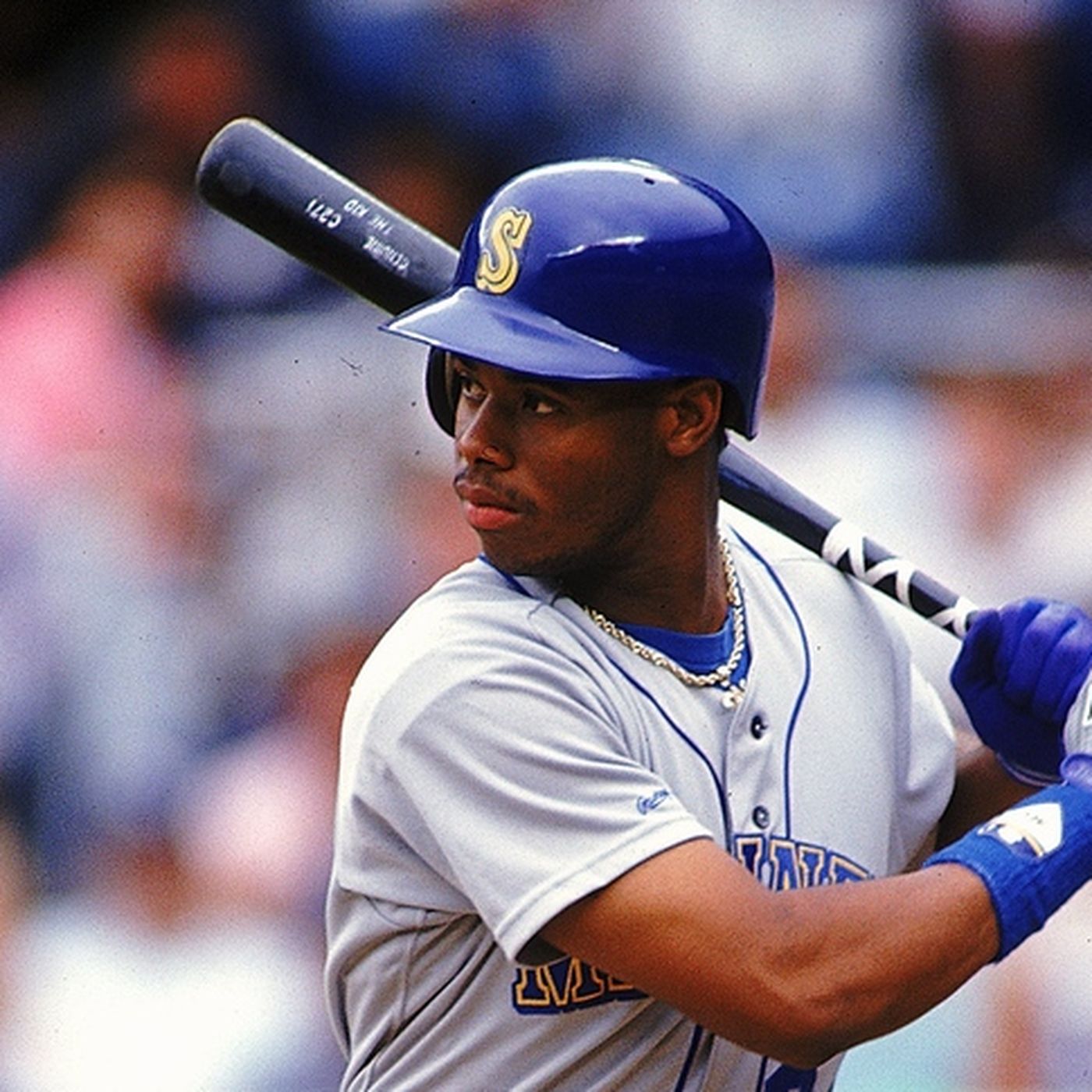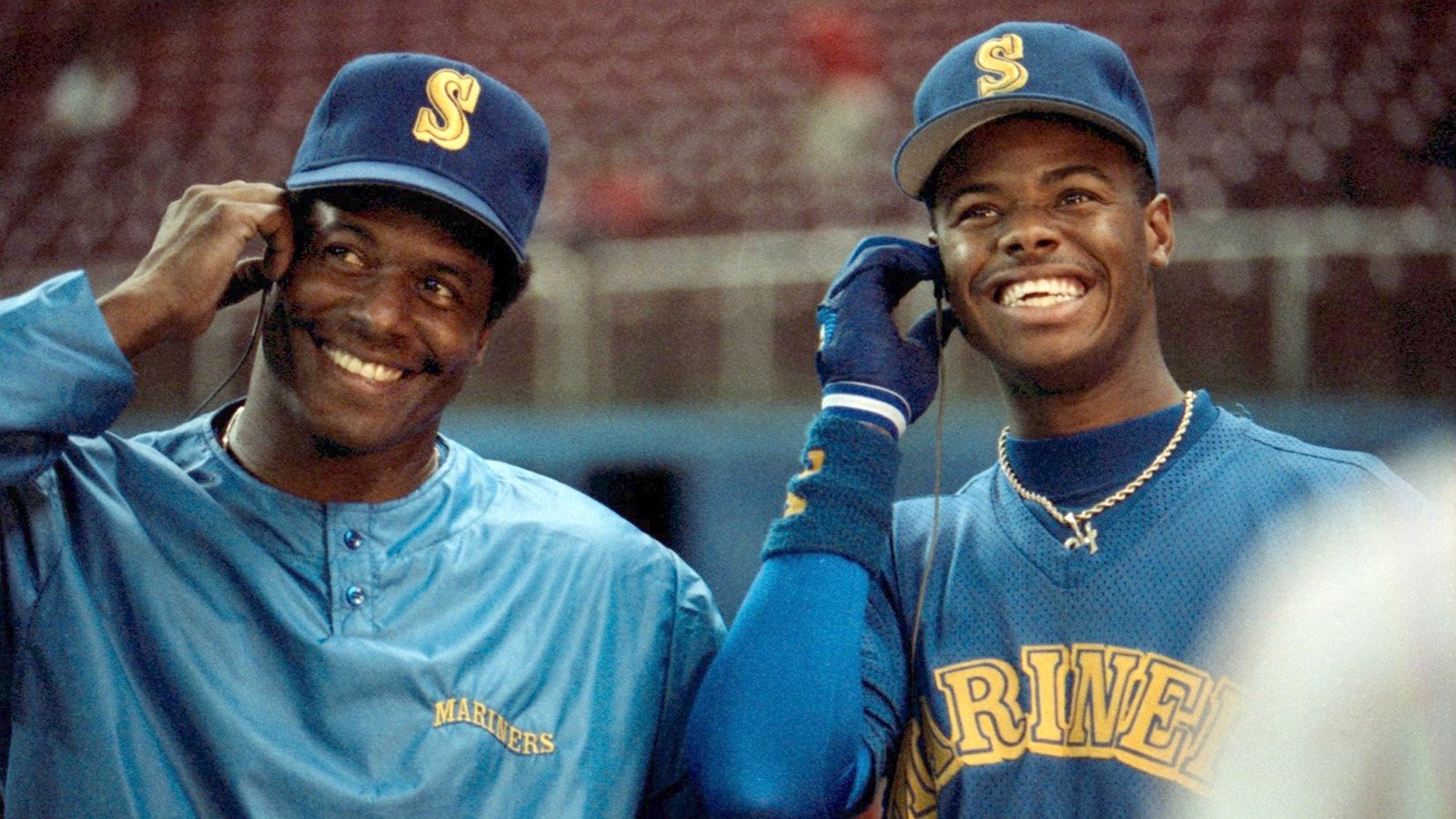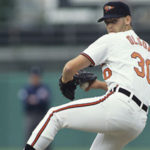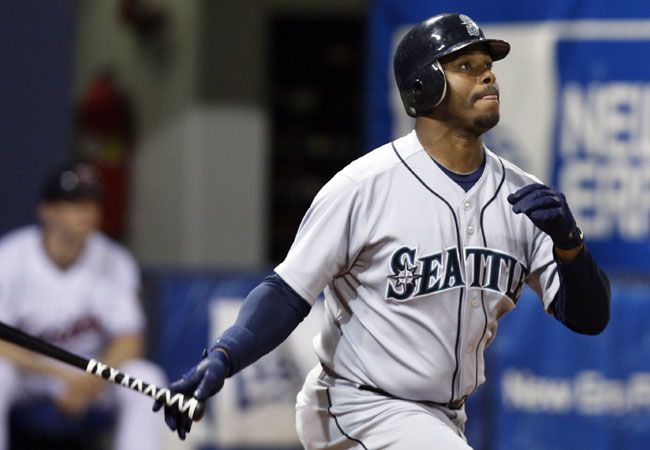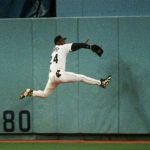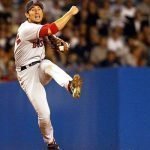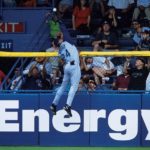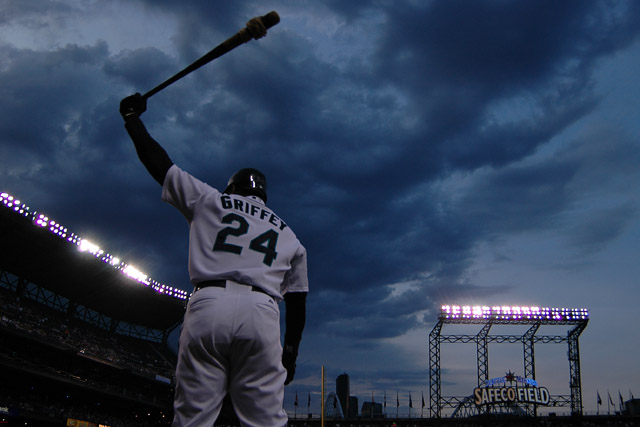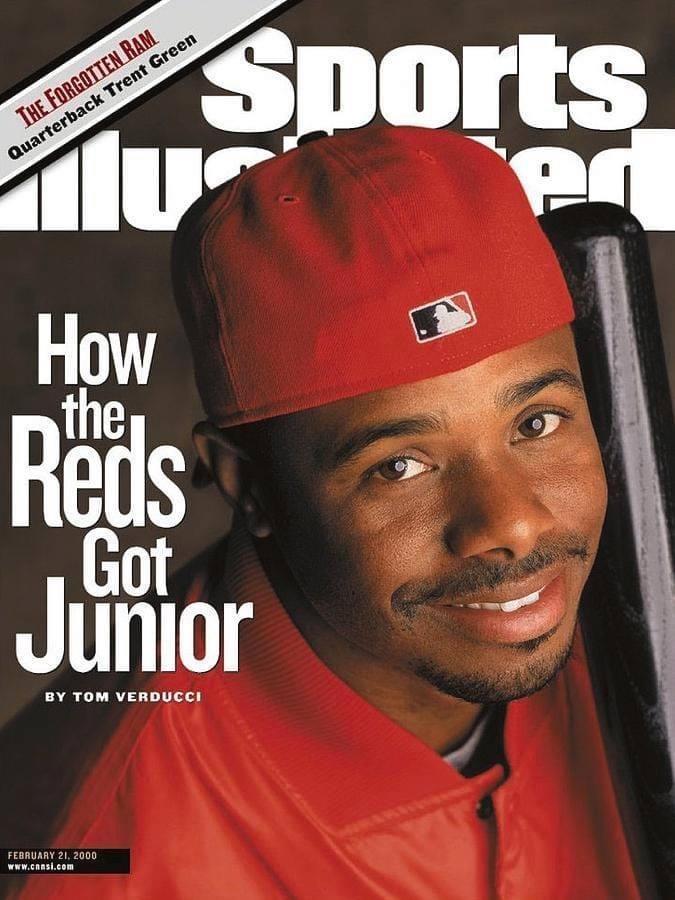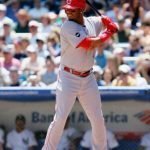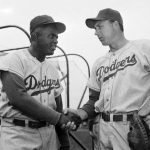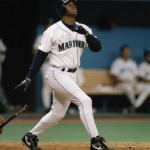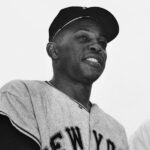Ken Griffey Jr. Career Highlights
Ken Griffey Jr.
Position: Centerfielder
Bats: Left • Throws: Left
6-3, 195lb (190cm, 88kg)
Born: November 21, 1969 in Donora, PA
Draft: Drafted by the Seattle Mariners in the 1st round (1st) of the 1987 MLB June Amateur Draft from Archbishop Moeller HS (Cincinnati, OH).
High School: Archbishop Moeller HS (Cincinnati, OH)
Debut: April 3, 1989 (15,589th in major league history)
vs. OAK 3 AB, 1 H, 0 HR, 0 RBI, 0 SB
Last Game: May 31, 2010
vs. MIN 1 AB, 0 H, 0 HR, 0 RBI, 0 SB
Hall of Fame: Inducted as Player in 2016. (Voted by BBWAA on 437/440 ballots)
View Ken Griffey Jr.’s Page at the Baseball Hall of Fame (plaque, photos, videos).
Full Name: George Kenneth Griffey
Nicknames: Junior, The Kid or The Natural
View Player Info from the B-R Bullpen
View Player Bio from the SABR BioProject
Relatives: Son of Ken Griffey
Nine Players Who Debuted in 1989
Steve Finley
Todd Zeile
John Olerud
Sammy Sosa
Omar Vizquel
Ken Griffey Jr.
Juan Gonzalez
Albert Belle
Jim Abbott
The Ken Griffey Jr. Teammate Team
C: Dan Wilson
1B: Sean Casey
2B: Harold Reynolds
3B: Edgar Martinez
SS: Barry Larkin
LF: Adam Dunn
CF: Ken Griffey Sr.
RF: Jay Buhner
DH: Deion Sanders
SP: Randy Johnson
SP: Mark Langston
SP: Jamie Moyer
SP: Freddy Garcia
SP: Steve Parris
RP: Jose Mesa
M: Lou Piniella
Notable Events and Chronology for Ken Griffey Jr Career
Once considered to be the man most likely to surpass Hank Aaron as baseball’s all-time home run king, Ken Griffey Jr. suffered a series of debilitating injuries that all but ended his quest to establish a new home run record. Nevertheless, the extremely talented Griffey, who is also known as Kid and Junior, made his mark on the game as one of the greatest centerfielders in baseball history, and as one of the finest all-around players ever to perform at the major league level. The 13-time All-Star, 10-time Gold Glove winner, and one-time American League MVP is currently fifth on the all-time home run list, with 630 long balls to his credit. Junior also ranks among the all-time leaders in runs batted in (15th) and total bases (12th). Still, when he eventually retires from the game, we will undoubtedly be left to wonder “what if.”
Born in Donora, Pennsylvania (also the birthplace of Stan Musial) on November 21, 1969, George Kenneth Griffey Jr. has spent his entire life around baseball. Many of his fondest childhood memories were created playing in the clubhouse of the Cincinnati Reds during the early 1970s – a period during which the team established itself as a National League dynasty. He was at his father’s side when Ken Griffey Sr. celebrated Cincinnati’s back-to-back World Series victories in 1975 and 1976 with his teammates. Therefore, it should come as no surprise that Junior developed a love of the game of baseball at a very young age.
After moving with his family to Cincinnati, Ohio at age six, Griffey Jr. went on to star in both baseball and football at Archbishop Moeller High School. Subsequently selected by the Seattle Mariners with the first overall pick of the 1987 amateur draft, Junior seemed to have everything a young man could ask for. However, all was not well beneath the surface. A few months after being picked first by Seattle, the 17-year-old Griffey attempted to take his life by swallowing 277 aspirin. Citing repeated arguments with his father, depression, and anger as the reasons for his attempted suicide, Junior later revealed, “It seemed like everyone was yelling at me in baseball, then I came home and everyone was yelling at me there…I got depressed. I got angry. I didn’t want to live.”
Fortunately, the mother of Griffey’s girlfriend saved his life by driving him to the hospital as soon as she discovered his condition. But, after being resuscitated in intensive care, Junior ripped the IV from his arm in order to stop an argument between him and his father. Both Griffeys have since stated that the incident permanently altered their relationship, creating a greater sense of understanding between them.
Feeling less burdened emotionally, Junior set about pursuing his dream of becoming a major league baseball player. After honing his skills in the minor leagues for two years, the 19-year-old Griffey impressed Seattle management to such an extent in spring training of 1989 that he began the year as the team’s starting centerfielder. Displaying tremendous all-around ability, Griffey did a superb job, both in the outfield and at the plate, hitting 13 home runs, driving in 45 runs, and batting .287 during the season’s first half. However, the Rookie of the Year candidate missed six weeks after he broke a bone in his left hand. Griffey struggled upon his return to the Mariners lineup, and he finished the year with only 16 home runs, 61 runs batted in, and a .264 batting average.
Healthy again in 1990, Junior quickly developed into Seattle’s best all-around player,
hitting 22 home runs, knocking in 80 runs, scoring 91 others, batting .300, and winning his first of 10 consecutive Gold Gloves. He also was named to the All-Star Team for the first of 11 straight times.
Griffey established himself as one of the American League’s top players the following year, when he hit 22 homers, drove in 100 runs, and finished near the top of the league rankings with a .327 batting average. Though still evolving as a player, Griffey displayed his vast array of skills for all to see. A five-tool player, he drove the ball with power to all fields while also hitting for a high batting average; he ran the bases well; and he did a superb job in the outfield, making several spectacular catches while also throwing out opposing baserunners who dared to challenge his arm.
Griffey’s extraordinary all-around talent made him one of baseball’s most popular and recognizable players. The amount of notoriety he received was also aided immeasurably by the tremendous enthusiasm he brought with him to the ballpark each day. Wearing a smile on his face and his cap turned backwards on his head during pre-game practice, Junior didn’t seem to have a care in the world. He expressed that sentiment when he said, “As long as I have fun playing, the stats will take care of themselves.”
Meanwhile, Hall of Fame outfielder Reggie Jackson theorized on Griffey’s immense popularity by stating, “We love Ken Griffey Jr. because he is everything we would like to be. He’s young, he’s good-looking, he’s got the best smile in the world, and he’s a heroic athlete. He is a shot in the arm for baseball. He is what this game needs right now. He is creating excitement and making headlines just by his presence. There hasn’t been anyone like that since…Reggie Jackson.”
Griffey had another outstanding year in 1992, hitting 27 home runs, knocking in 103 runs, and batting .308. It was in 1993, though, that Junior developed into a truly dominant player. More physically mature at 22 years of age, the 6’2″, 230-pound centerfielder finished second in the American League with 45 home runs and a .617 slugging percentage, knocked in 109 runs, scored 113 others, batted .309, and topped the circuit with 359 total bases. Griffey’s superb play earned him a fifth-place finish in the league MVP voting.
Although the 1994 campaign ended prematurely due to a players’ strike, Griffey approached his previous career highs in numerous statistical categories, establishing himself in the process as the American League’s best all-around player. He topped the circuit with 40 home runs, and he also placed among the leaders with 90 runs batted in, 94 runs scored, a .323 batting average, and a .674 slugging percentage. Junior finished second to Chicago’s Frank Thomas in the league MVP balloting.
A broken wrist forced Griffey to miss more than half of the 1995 season, but he returned in time to join Randy Johnson, Edgar Martinez, Jay Buhner, and the rest of the young Mariners in their first pennant race. Junior hit 17 home runs in only 72 games, to help Seattle to the Western Division title. He then hit five home runs, batted .391, knocked in seven runs, and scored nine others, including the series clincher, during the Mariners’ five-game victory over the Yankees in the ALDS. Although Seattle lost the ALCS to the Indians in six games, Griffey batted .333, with one homer and two RBIs.
Junior had his best season to-date the following year, beginning an extraordinary four-year run that saw him average 52 home runs, 142 runs batted in, and 123 runs scored. He batted .303 in 1996 and placed among the league leaders with 49 home runs, 140 runs batted in, 125 runs scored, and a .628 slugging percentage, to earn a fourth-place finish in the league MVP voting. Junior followed that up by capturing A.L. MVP honors in 1997 by batting .304 and topping the circuit with 56 home runs, 147 runs batted in, 125 runs scored, and a .646 slugging percentage. He also was named The Sporting News Major League Player of the Year.
Griffey had two more sensational years with the Mariners before his time with the team ended. He batted .284 in 1998, drove in 146 runs, scored 120 others, and led the league with 56 home runs. Junior topped the circuit in homers again the following year, hitting 48 long balls, while also knocking in 134 runs, scoring 123 times, and batting .285. At the end of that 1999 season, Griffey received the Players Choice Award as Major League Baseball’s Player of the Decade.
The 1999 campaign turned out to be Griffey’s last year in Seattle. With free agency looming for Junior at the end of 2000, the Mariners elected to trade their star centerfielder to the Cincinnati Reds for four players prior to the start of the season. Upon his return to Cincinnati, Griffey stated, “This is something I dreamed about as a little kid, being back in my hometown where I watched so many great players.”
Griffey had one big year for the Reds before injuries significantly reduced both his playing time and his offensive productivity the next several seasons. After hitting 40 home runs, driving in 118 runs, scoring 100 others, and batting .271 for Cincinnati in 2000, Junior was limited to only 317 games and 63 homers the next four years, essentially ending his pursuit of the all-time career home run record. Griffey later put together another two or three solid seasons for the Reds, but he was traded to the Chicago White Sox on July 31, 2008 after batting only .245 for Cincinnati over the season’s first four months. After becoming a free agent at the end of the year, Griffey returned to Seattle, where he said he hopes to end his career. Heading into 2010, Junior has 630 career home runs, 1,829 runs batted in, 1,656 runs scored, 2,763 hits, and a .285 lifetime batting average. He leads all current active players in home runs, runs batted in, and total bases, and he is second in both runs scored and base hits. Griffey has surpassed 40 homers seven times, 100 runs batted in eight times, and 100 runs scored on six separate occasions. Junior has also batted over .300 eight times. In addition to winning the Most Valuable Player Award once, he has finished in the top five in the voting four other times.
Griffey was inducted into the Baseball Hall of Fame in 2016, he received 437 of a possible 440 votes.
@ET-DC@eyJkeW5hbWljIjp0cnVlLCJjb250ZW50IjoicG9zdF90YWdzIiwic2V0dGluZ3MiOnsiYmVmb3JlIjoiTGVhcm4gTW9yZSBhYm91dCB0aGUgdGVhbXMsIHBsYXllcnMsIGJhbGwgcGFya3MgYW5kIGV2ZW50cyB0aGF0IGhhcHBlbmVkIG9uIHRoaXMgZGF0ZSBpbiBoaXN0b3J5IC0gLSAtIC0gLSAtIC0gIiwiYWZ0ZXIiOiIiLCJsaW5rX3RvX3Rlcm1fcGFnZSI6Im9uIiwic2VwYXJhdG9yIjoiIHwgIiwiY2F0ZWdvcnlfdHlwZSI6InBvc3RfdGFnIn19@
Factoids, Quotes, Milestones and Odd Facts

